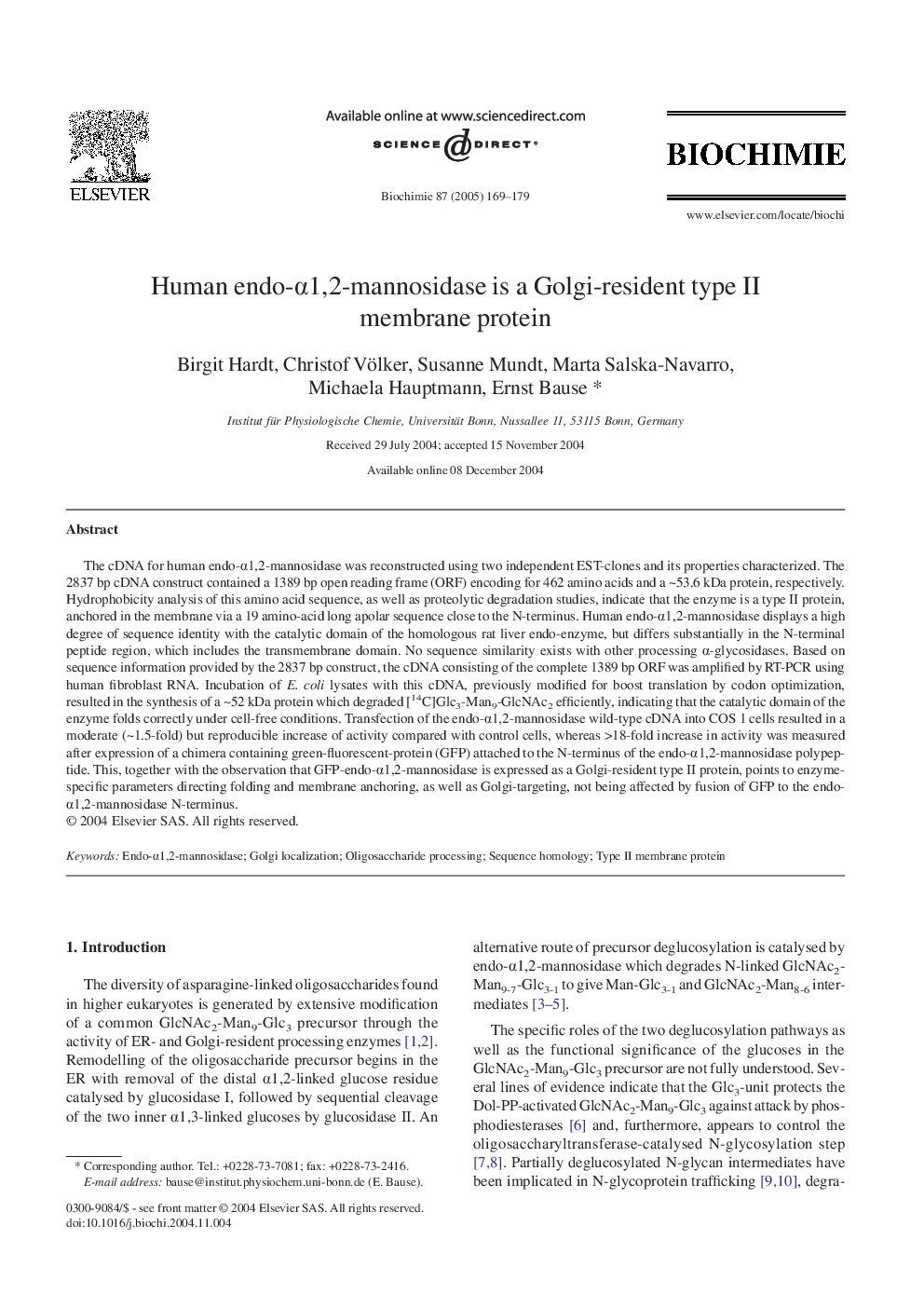| Article ID | Journal | Published Year | Pages | File Type |
|---|---|---|---|---|
| 10804662 | Biochimie | 2005 | 11 Pages |
Abstract
The cDNA for human endo-α1,2-mannosidase was reconstructed using two independent EST-clones and its properties characterized. The 2837 bp cDNA construct contained a 1389 bp open reading frame (ORF) encoding for 462 amino acids and a ~53.6 kDa protein, respectively. Hydrophobicity analysis of this amino acid sequence, as well as proteolytic degradation studies, indicate that the enzyme is a type II protein, anchored in the membrane via a 19 amino-acid long apolar sequence close to the N-terminus. Human endo-α1,2-mannosidase displays a high degree of sequence identity with the catalytic domain of the homologous rat liver endo-enzyme, but differs substantially in the N-terminal peptide region, which includes the transmembrane domain. No sequence similarity exists with other processing α-glycosidases. Based on sequence information provided by the 2837 bp construct, the cDNA consisting of the complete 1389 bp ORF was amplified by RT-PCR using human fibroblast RNA. Incubation of E. coli lysates with this cDNA, previously modified for boost translation by codon optimization, resulted in the synthesis of a ~52 kDa protein which degraded [14C]Glc3-Man9-GlcNAc2 efficiently, indicating that the catalytic domain of the enzyme folds correctly under cell-free conditions. Transfection of the endo-α1,2-mannosidase wild-type cDNA into COS 1 cells resulted in a moderate (~1.5-fold) but reproducible increase of activity compared with control cells, whereas >18-fold increase in activity was measured after expression of a chimera containing green-fluorescent-protein (GFP) attached to the N-terminus of the endo-α1,2-mannosidase polypeptide. This, together with the observation that GFP-endo-α1,2-mannosidase is expressed as a Golgi-resident type II protein, points to enzyme-specific parameters directing folding and membrane anchoring, as well as Golgi-targeting, not being affected by fusion of GFP to the endo-α1,2-mannosidase N-terminus.
Keywords
Related Topics
Life Sciences
Biochemistry, Genetics and Molecular Biology
Biochemistry
Authors
Birgit Hardt, Christof Völker, Susanne Mundt, Marta Salska-Navarro, Michaela Hauptmann, Ernst Bause,
